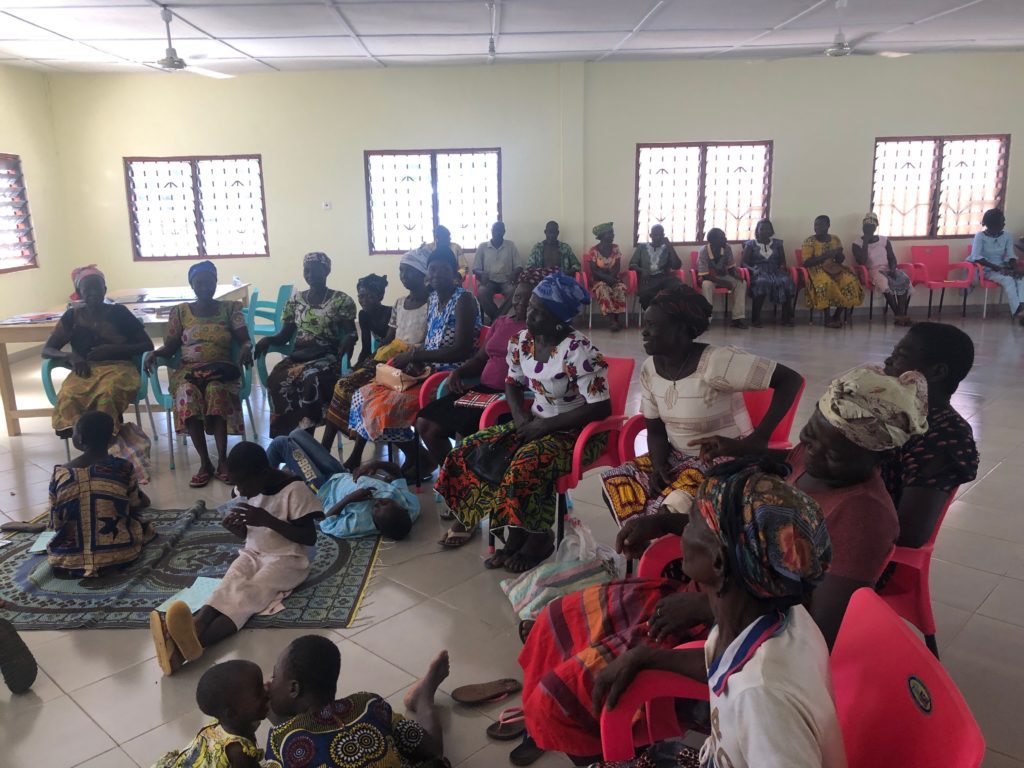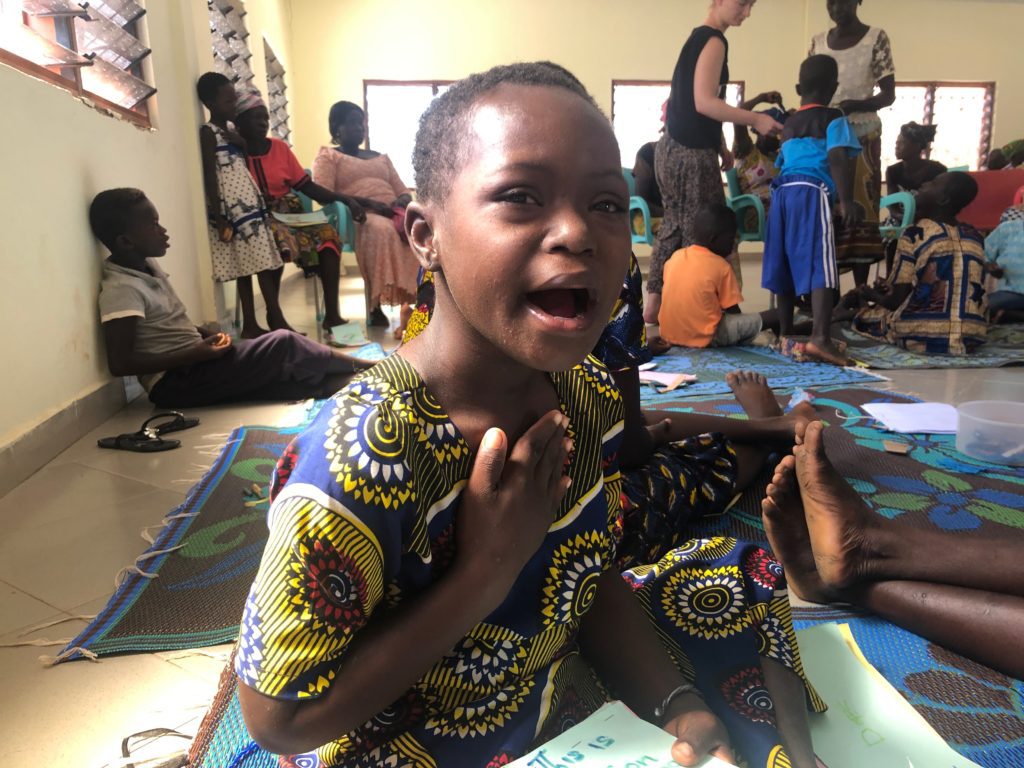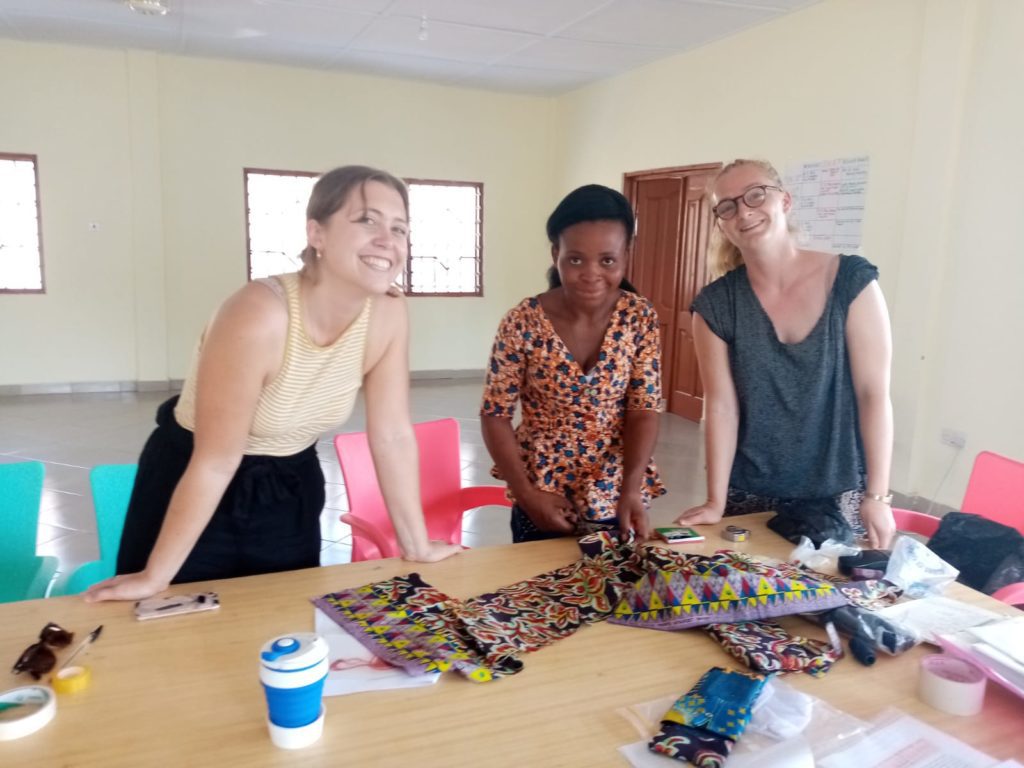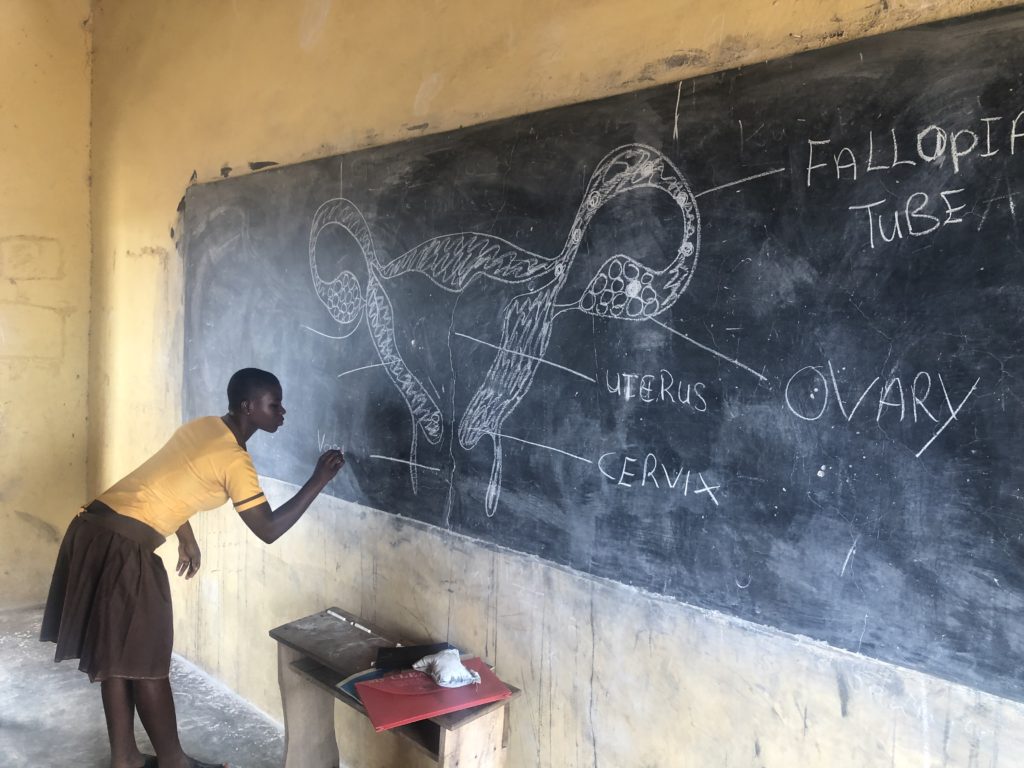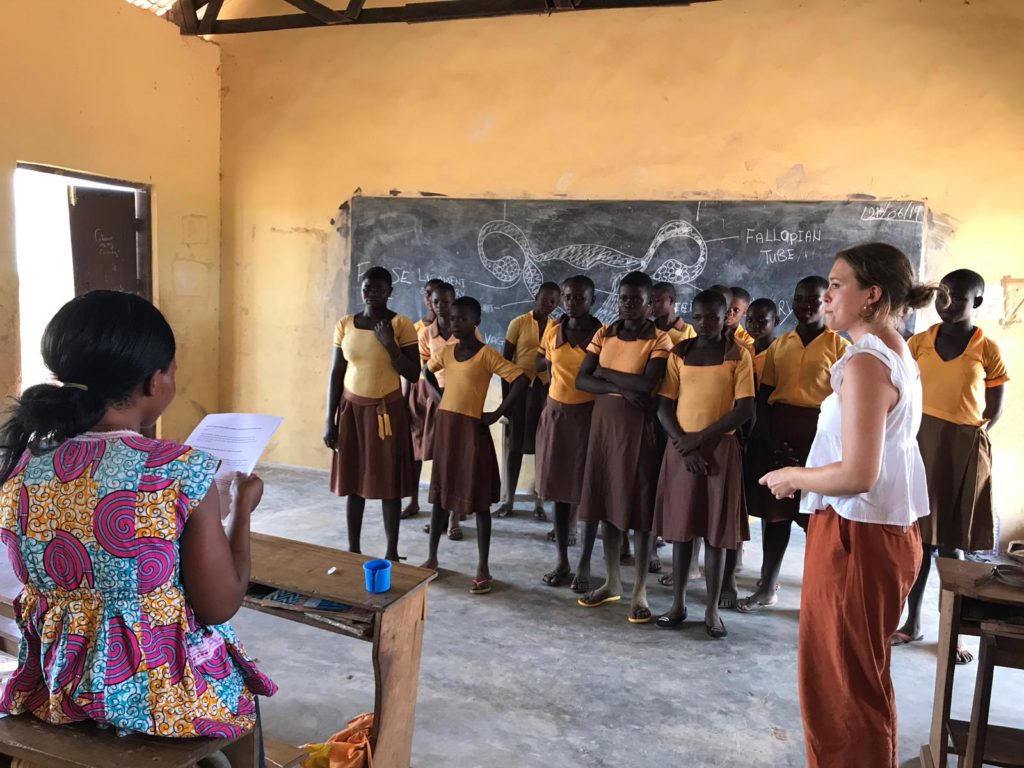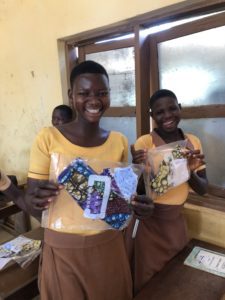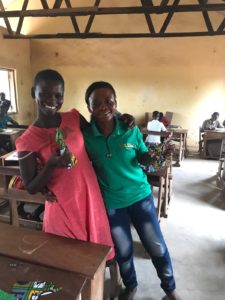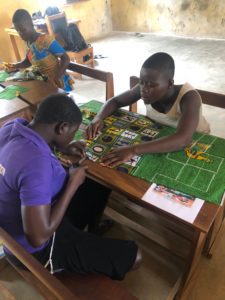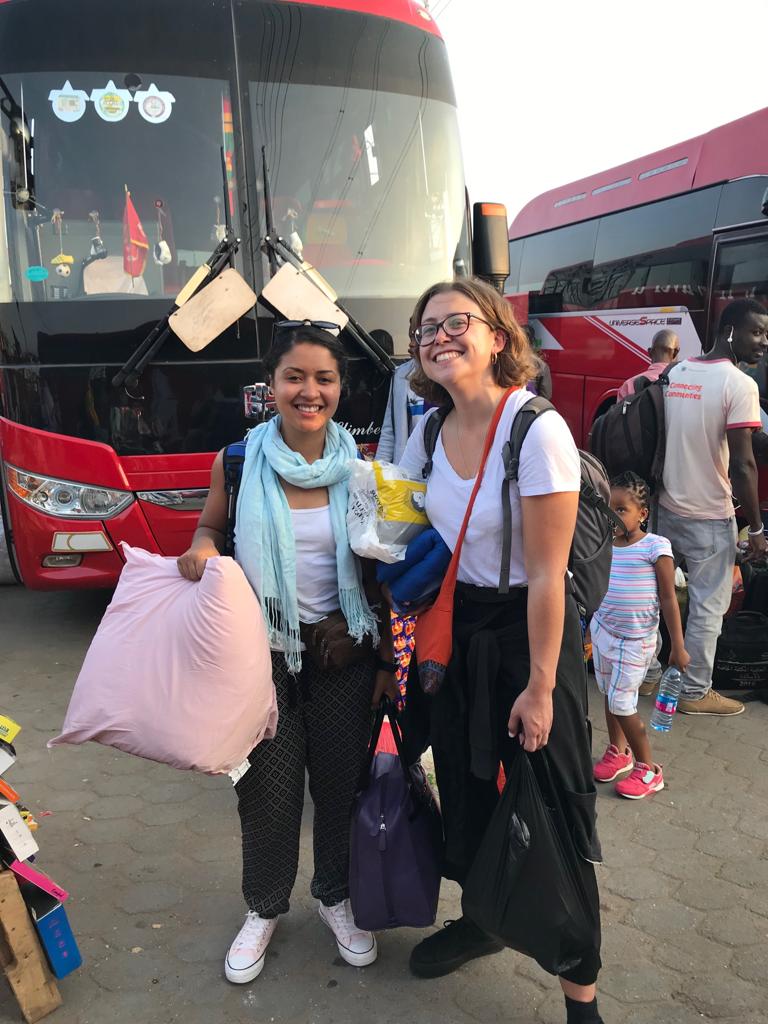 In June I hopped on a 6 hour plane, and a 17 hour overnight bus, to work with ATE in Lawra, Upper West Ghana for a month. Having worked for ATE for six months as a Research and Projects Intern, supporting the team with the variety of projects which the charity runs, I was eager to visit the vibrant community I had got to know from 2800 miles away in the Ramsbury office.
In June I hopped on a 6 hour plane, and a 17 hour overnight bus, to work with ATE in Lawra, Upper West Ghana for a month. Having worked for ATE for six months as a Research and Projects Intern, supporting the team with the variety of projects which the charity runs, I was eager to visit the vibrant community I had got to know from 2800 miles away in the Ramsbury office.
Since this trip, I am delighted to have been employed by ATE as a full time Operations and Project Support Officer. I am proud to work for a small charity which I believe is doing truly sustainable development work. My time in Lawra was a crucial part of getting to know the programmes, and being inspired to commit to it.
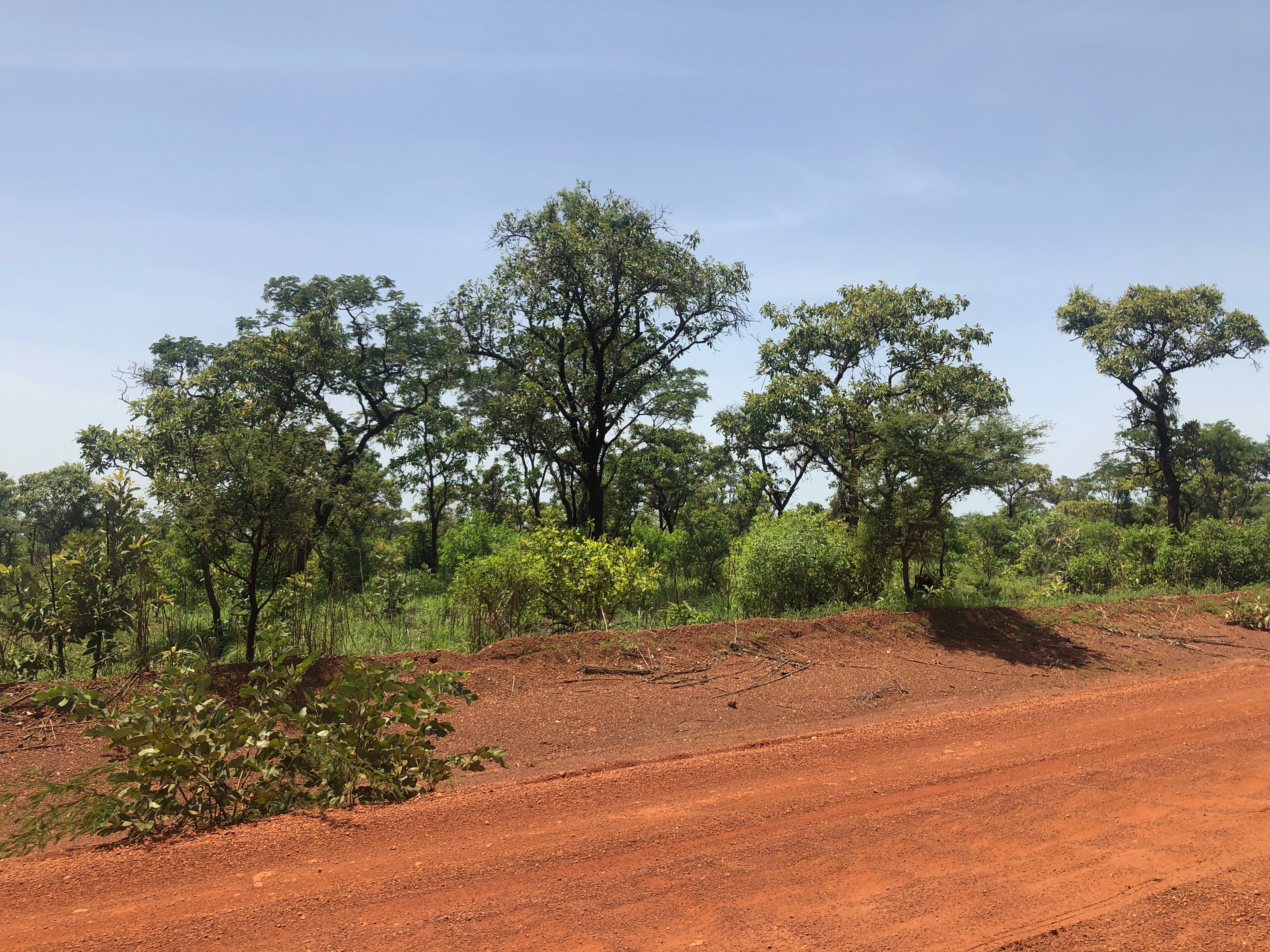 On my trip I was working closely with Sarah Livesey, ATE’s Operations and Project Support Officer at the time, on two main projects – the launch of the SNAP Play Scheme in ATE’s newly built Inclusion Centre, and the second phase of our Support for Girls workshops. These are two really exciting projects which I had seen develop during my time in the UK office prior to the trip, and I was keen to get out and see them in action myself. After a few days settling in to Lawra and the heat, getting to know the team, and meeting with local ATE supported small business owners, it was time to start the project work.
On my trip I was working closely with Sarah Livesey, ATE’s Operations and Project Support Officer at the time, on two main projects – the launch of the SNAP Play Scheme in ATE’s newly built Inclusion Centre, and the second phase of our Support for Girls workshops. These are two really exciting projects which I had seen develop during my time in the UK office prior to the trip, and I was keen to get out and see them in action myself. After a few days settling in to Lawra and the heat, getting to know the team, and meeting with local ATE supported small business owners, it was time to start the project work.
Working on the launch of the SNAP Play Scheme was a fantastic experience as the newly built Inclusion Centre would now be host to two lively play sessions for SNAP members every week. This big, bright and airy building now stands in the middle of Lawra town as a symbol of inclusivity, countering discriminatory beliefs just through its existence. The Play Scheme has been designed to give SNAP members regular socialisation with other children, using activities to stimulate the mind and body, and utilising the many benefits of play! During our time in Lawra, Sarah and I worked with Ernestina Gan, ATE’s Play Scheme Co-ordinator, to help develop new activities for the sessions and the Play Scheme as a whole. Ernestina is driven, enthusiastic, and amazing with the children – I am so excited to continue to work with her and see first hand the amazing difference she is making for these children and their parents. On the launch of the Play Scheme, one of the mothers, Saan-yaa, said to us about her daughter Takum, ‘This activity will help my child because she is usually at home doing nothing, but today I can see a smile on her face.’ Hearing comments like this makes all of the hard work (in extreme heat!) preparing for the launch worth it.
The ‘Support for Girls’ workshops were the other focus on our trip; three sessions at two schools throughout the week, and a group session on the Saturday. This project was a special one to work on for me, as I am particularly passionate about issues of gender and the promotion of girls’ rights, and had worked on the research and development of the programme during my time as an intern. The workshops were created with the aim of tackling absenteeism in schools by encouraging girls to complete their basic education, in response to a finding in an EducATE programme evaluation in 2016. Many girls in rural Ghana don’t attend school during menstruation because of lack of sanitary products and adequate changing facilities at school, meaning they miss out on key class time or drop out of school completely – I am passionate about trying to find ways to keep girls in school. This was the second phase of this programme, and took place at Gombele JHS and Biro JHS, the most rural two schools that ATE supports, where access to sanitary products is especially difficult. The workshops covered confidence building, careers and future planning, and menstruation. Throughout the course of the week we saw the girls contribute more and more; gaining confidence, engaging with the activities and thinking for themselves. The session on menstruation was particularly powerful, encouraging the girls to be proud and not embarrassed, and finding ways to manage a tricky time for any teenage girl.
A highlight of the trip for me was the final part of the Support for Girls workshops – a reusable sanitary pad making session. This was an optional workshop on an incredibly rainy Saturday morning, so we didn’t have hugely high hopes for attendance. When we first arrived to set up only five girls were there waiting, but an hour or so in twenty seven girls had come to the workshop! We spent the morning working in groups to make a reusable sanitary pad, with Ghanaian sensations Shatta Wale and Stonebwoy songs playing in the background and the rain pouring outside. What was the most rewarding thing from the session, besides the valuable and hopefully helpful skill that the girls were learning, was how much the girls seemed to enjoy having a space for just themselves for four hours; to talk with their friends and relax like the teenage girls they are, when normally they might not usually have the opportunity to do so due to their other responsibilities. A Saturday morning well spent!
 Another slightly less meaningful but equally enjoyable highlight of my time in Lawra was frequenting the many amazing fabric shops around the town and then getting some beautiful clothes made! ATE’s Interim Director of Operations in Ghana, Jessica Cruse, and I became rather obsessed in our spare time with perusing the beautiful patterns; if it had been a particularly challenging day, fabric was the answer! We then visited ATE-supported thriving seamstresses and VocATE apprentices, to get our fabric turned into beautiful garments. Goodbye fast fashion!
Another slightly less meaningful but equally enjoyable highlight of my time in Lawra was frequenting the many amazing fabric shops around the town and then getting some beautiful clothes made! ATE’s Interim Director of Operations in Ghana, Jessica Cruse, and I became rather obsessed in our spare time with perusing the beautiful patterns; if it had been a particularly challenging day, fabric was the answer! We then visited ATE-supported thriving seamstresses and VocATE apprentices, to get our fabric turned into beautiful garments. Goodbye fast fashion!
My time in Lawra allowed me to observe, first hand, the powerful work that the charity does with limited resources, to continue to initiate sustainable programmes with massive impact. My trip highlighted the value of getting out into the communities, building lasting relationships, and gaining a greater depth of cultural understanding; activities that are crucial to the continued success of the organisation’s work. Both projects I worked on during my time in Lawra highlighted the strength of (particularly) women in challenging circumstances – the SNAP mothers who rise above inconceivable discrimination due to their child’s disabilities, and the school girls who everyday combat gender norms and difficulties in attending school. I am excited and motivated to continue working with these inspiring women, and all of the other inspiring people that ATE works with, in my new role as ATE’s Operations and Project Support Officer.
By Tara Colsell-Hawes
